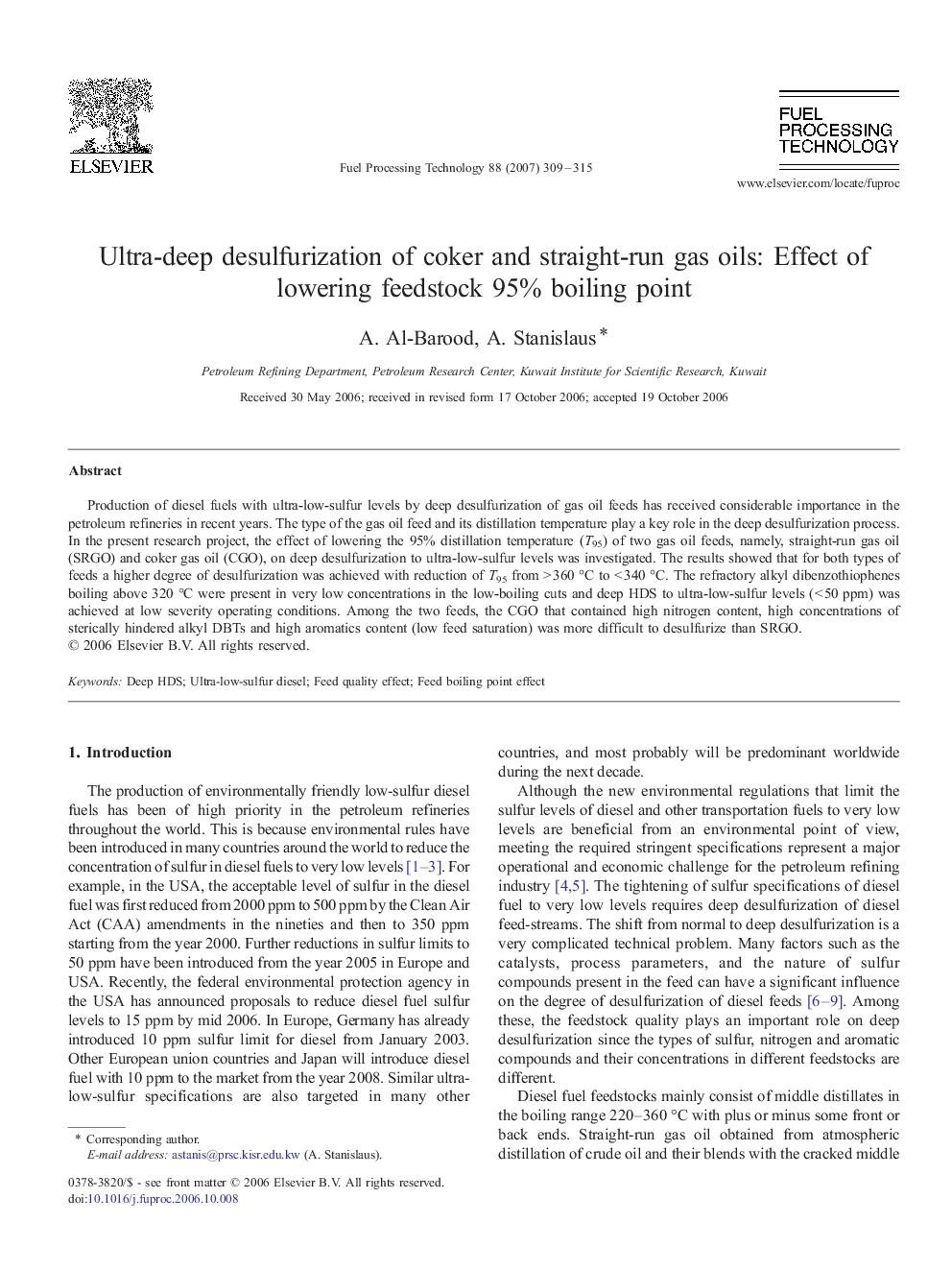| Article ID | Journal | Published Year | Pages | File Type |
|---|---|---|---|---|
| 211664 | Fuel Processing Technology | 2007 | 7 Pages |
Production of diesel fuels with ultra-low-sulfur levels by deep desulfurization of gas oil feeds has received considerable importance in the petroleum refineries in recent years. The type of the gas oil feed and its distillation temperature play a key role in the deep desulfurization process. In the present research project, the effect of lowering the 95% distillation temperature (T95) of two gas oil feeds, namely, straight-run gas oil (SRGO) and coker gas oil (CGO), on deep desulfurization to ultra-low-sulfur levels was investigated. The results showed that for both types of feeds a higher degree of desulfurization was achieved with reduction of T95 from > 360 °C to < 340 °C. The refractory alkyl dibenzothiophenes boiling above 320 °C were present in very low concentrations in the low-boiling cuts and deep HDS to ultra-low-sulfur levels (< 50 ppm) was achieved at low severity operating conditions. Among the two feeds, the CGO that contained high nitrogen content, high concentrations of sterically hindered alkyl DBTs and high aromatics content (low feed saturation) was more difficult to desulfurize than SRGO.
